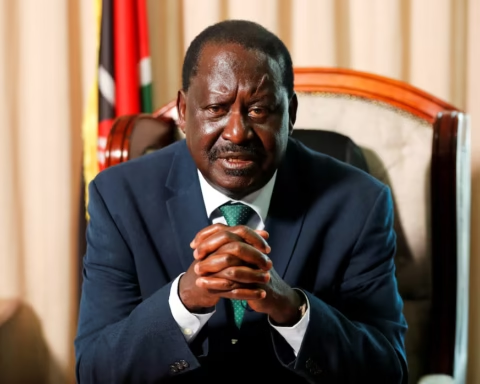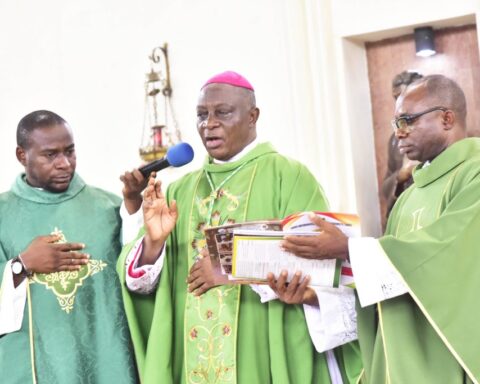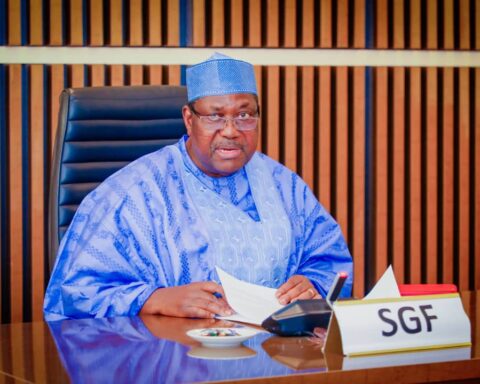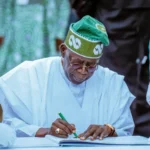Calls for FG-Dangote dialogue over oil industry crisis
The Trade Union Congress of Nigeria (TUC) has called on the Inspector General of Police (IGP), Mr. Kayode Egbetokun, to provide security to safeguard the upcoming protest on August 1 over issues of bad governance and economic hardship.
The TUC President, Festus Osifo at a press briefing yesterday (Thursday, July 25, in Abuja, reminded that the Nigerian Police are mandated by the Police Act and the Constitution of the Federal Republic of Nigeria to provide sufficient security for protesters, to ensure peaceful protests not infiltrated by potential hoodlums seeking to exploit the situation.
Osifo, however, clarified that the TUC would not be rallying its members to participate in the protest, as there is currently no identifiable leader or sponsor associated with the event.
He stated that if the TUC had been approached or invited to take part, it likely would have considered participating.
According to him, “when you are having a protest you need to sit down, have conversation, have meetings and plan but as of today, nobody has reached out to us that they want to protest, nobody has asked for our collaboration so how do you expect us to participate in a protest when we don’t know who is organising it?”
“We don’t even have any idea whatsoever what is going to happen and as an institution, we also know that we have various organs that we run some of those things with. The leadership never sat down one day on the phone to call for a strike or protest but instead, we called the organs’ meeting to do a review,” he stressed.
“The same way you saw it in the media is the way we have seen it. it’s something we don’t really know who is organising it, we don’t really know who is protesting but all we know is that the Constitution of the Federal Republic of Nigeria is very clear on the issue of protest and the Police Act also mandated the police that when there is a protest they should ensure there is law and order, they should ensure those that are protesting are also protected.
“That is why we are reminding them that the provision in the Police Act and the provision in the Constitution should be respected. If they had contacted us maybe we would have called our organs meeting for us to review but as of today, there is clearly nothing to discuss, there is clearly nothing to review.”
Speaking on the state of the nation, Osifo criticised the condition of the Nigerian economy and highlighted the profound impact of these challenges on the populace.
“The Nigerian economy is passing through some herculean challenges,” he lamented.
He also decried the escalating cost of living worsened by fiscal and monetary policies. He blamed the floating of the Naira on its persistent depreciation, and subsequent hike in prices across essential commodities, including diesel.
The TUC President referenced a previous world press conference where comprehensive solutions were proposed to address these issues, stating that key among these was the urgent need to stabilise the exchange rate to alleviate economic pressures on imported goods, which form a significant part of Nigeria’s consumption.
Osifo also highlighted security concerns affecting agricultural activities, particularly in northern Nigeria, where farming communities face threats hindering their ability to cultivate crops. This insecurity, they argued, contributes to the high cost of food products nationwide.
Moreover, the TUC President reiterated calls for the government to waive import duties on machinery and other production inputs to stimulate local manufacturing and reduce dependency on foreign goods.
Regarding recent developments, including statements surrounding the Dangote refinery and upcoming protests, the TUC President urged government actors to prioritise constructive dialogue over public disputes. He stressed the need for a conducive environment for investment to foster economic growth.
Osifo further applauded the National Assembly’s swift passage of the National Minimum Wage Act, setting a new benchmark of 70,000 Naira per month. While acknowledging this progress, the labour leader urged state governments to promptly implement the new wage structure to improve the standard of living for workers across the country.



























